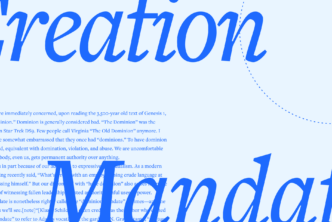Answer not a fool according to his folly,
lest you be like him yourself.
Answer a fool according to his folly,
lest he be wise in his own eyes.
Which one is it? Answer the fool or not?
On the surface, these verses appear contradictory. But with just a little thought, the brilliance of the poetry comes through, and the meaning is clear and agreeable.
It all hinges on how you interpret the preposition ke (“according to”) in each line.
Taking ke as the same
If you take them as having the same meaning, then there is indeed a contradiction.
Most commentators of this persuasion find resolution in holding that the proverbs are true depending on the circumstance. Sometimes it is better to keep your mouth shut, and others to rebuke the fool. It’s true that wisdom involves knowing what to do when, so this position isn’t without merit.
However, Fox points out that “nothing in the verses connects them to particular settings,” and even then, the advice isn’t very helpful, “since no further guidance is offered as to when one should do what.”1
This interpretation could do, but isn’t necessary, because a better one exists.
Taking ke differently in each line
If you take the two appearances of ke differently in each line, you end up with something like this:
Don’t answer a fool “with behavior similar to his”
…
Answer a fool “with an answer appropriate to his particular folly”
…2
In other words, don’t run your mouth back at a fool. Instead, rebuke him with wise words.
The preposition functions slightly different in each line, which is part of the brilliance of the poetry.
“[. . .] In poetry the point of comparison may be left vague in order to allow an analogy to open up, inducing the reader to engage the analogy and find not one but many contacts between the things compared.”3
What seems at first a contradiction instead becomes a clever device of the author to help you remember how to answer a fool: not with words that match his folly, but with words that reveal it.
I appreciate how Waltke sums up the issue in his commentary (currently 40% off):
It is unfitting to meet the fool’s insult with insult (2 Pet 3:9). Should the disciple reply vindictively, harshly, and/or with lies—the way fools talk—he too—“yes, even you”—would come under the fool’s condemnation. Rather, without lowering himself to the fool’s level in a debate, but by overcoming evil with good (25:21f.), the wise must show the fool’s folly for what it is. The wise do not silently accept and tolerate the folly and thereby confirm fools in it. Both proverbs are absolutes and applicable at the same time, contrary to the opinion of many commentators, who think they are relative to the situation. To be sure there is a time to be silent and a time to speak (Ecc 4:5), but one must always, not in only certain situation, answer a fool to destabilize him, but, always, not sometimes, without becoming like him.4
- Michael V. Fox, Proverbs 10–31 in the Anchor Yale Bible series (New Haven & London: Yale University Press, 2009), 794.
- Ibid.
- Bruce K. Waltke and M. O’Connor, An Introduction to Biblical Hebrew Syntax (Winona Lake: Eisenbrauns, 1990), 208.
- Bruke K. Waltke, The Book of Proverbs, 15:30–31:31 in the New International Commentary on the Old Testament (Grand Rapids: Eerdmans, 2005), 349.





